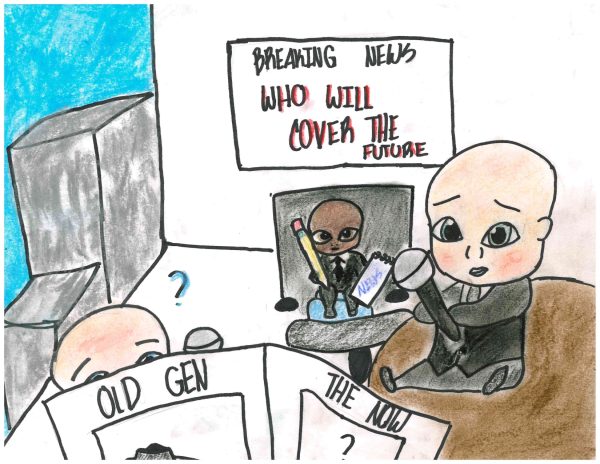Grammys parades legacy rock acts, neglects new artists
By nominating mainly established bands with a long lasting legacy in this year’s Grammy Awards, the Recording Academy is showing a favoritism for rock’s past over rock’s present. Numerous critical success and chart topping releases have been left out of Grammy consideration.
Despite the recent successes and growing relevancy of rock and metal amongst young listeners, the Grammy Awards continues to parade releases from legacy acts, demonstrating the industry’s view on the vitality of rock music.
From September 1, 2020 to August 31, 2021 a fair amount happened in the world of rock and metal music.
Turnstile, Måneskin, Black Veil Brides, Greta Van Fleet, Machine Gun Kelly, WILLOW, Deafheaven and Architects all released relevant rock singles or albums during this span of time that made buzz in rock circles, whether due to commercial success, online virality, or critical acclaim.
What else do these acts have in common?
None of them received a nomination for a Grammy this year.
What else?
None of these acts have been active for more than 18 years.
In fact, only one released their debut album before 2010.
Compare this to the acts nominated in the actual rock and metal categories where only two acts have been active for less than that, Mammoth WVH and Black Pumas.
Mammoth WVH is fronted by Wolfgang Van Halen, former bassist of legendary hard rock band Van Halen and son of guitarist Eddie Van Halen, making that band almost a legacy act by default.
Black Pumas on the other hand is a new fresh band, but they are missing one important part, they aren’t a rock band, they are soul.
The Recording Academy is simply out of touch with what’s relevant and is lacking an important key element of this category.
They don’t make rock music, they make soul.
Some of the other nominees this year include AC/DC and Paul McCartney, artists who peaked in relevance when my grandparents were kids, and Chris Cornell, who has literally been dead for five years.
This issue is very specific to rock as it doesn’t typically extend to other genres like hip hop or pop.
When we look at the nominations for the best pop vocal album we see artists like Olivia Rodrigo, Billie Eilish, Justin Bieber and Doja Cat, none of whom are over 28 years old. When we look at the nominations for best rock album it’s the opposite, none of the members of the bands are younger than 32.
It goes without saying that The Recording Academy is deeply out of touch and seems to misunderstand what’s truly relevant and important in modern rock.
Now I can already hear many people thinking that this is okay because age doesn’t discredit one’s art, regardless of how old they may be.
I agree wholeheartedly.
David Bowie’s 2016 masterpiece “Blackstar” is a shining example of this, acting as an artistic send-off to Bowie’s five-decade-long career in music prior to his passing of cancer.
But what keeps genres of music alive is not legacy artists, it’s the new ones who are building their fanbase with every release and showing that rock music can be viable again, even in the modern music mainstream where hip hop rules.
It’s another disappointing year for Grammy nominations, but the silver lining is that the awards don’t truly represent what’s relevant in music, because what is relevant isn’t controlled by industry elites, it’s controlled by listeners like you and me.







